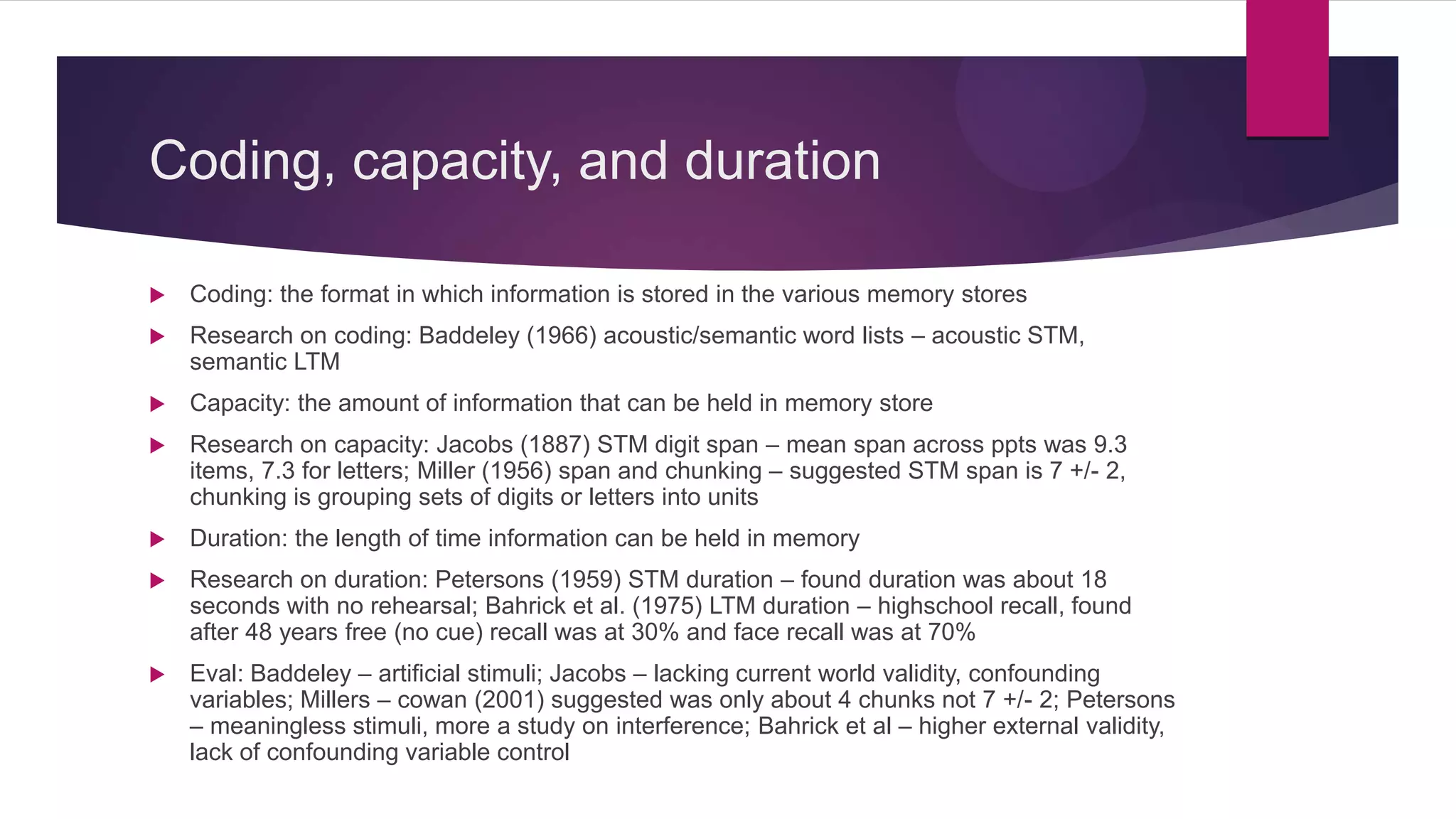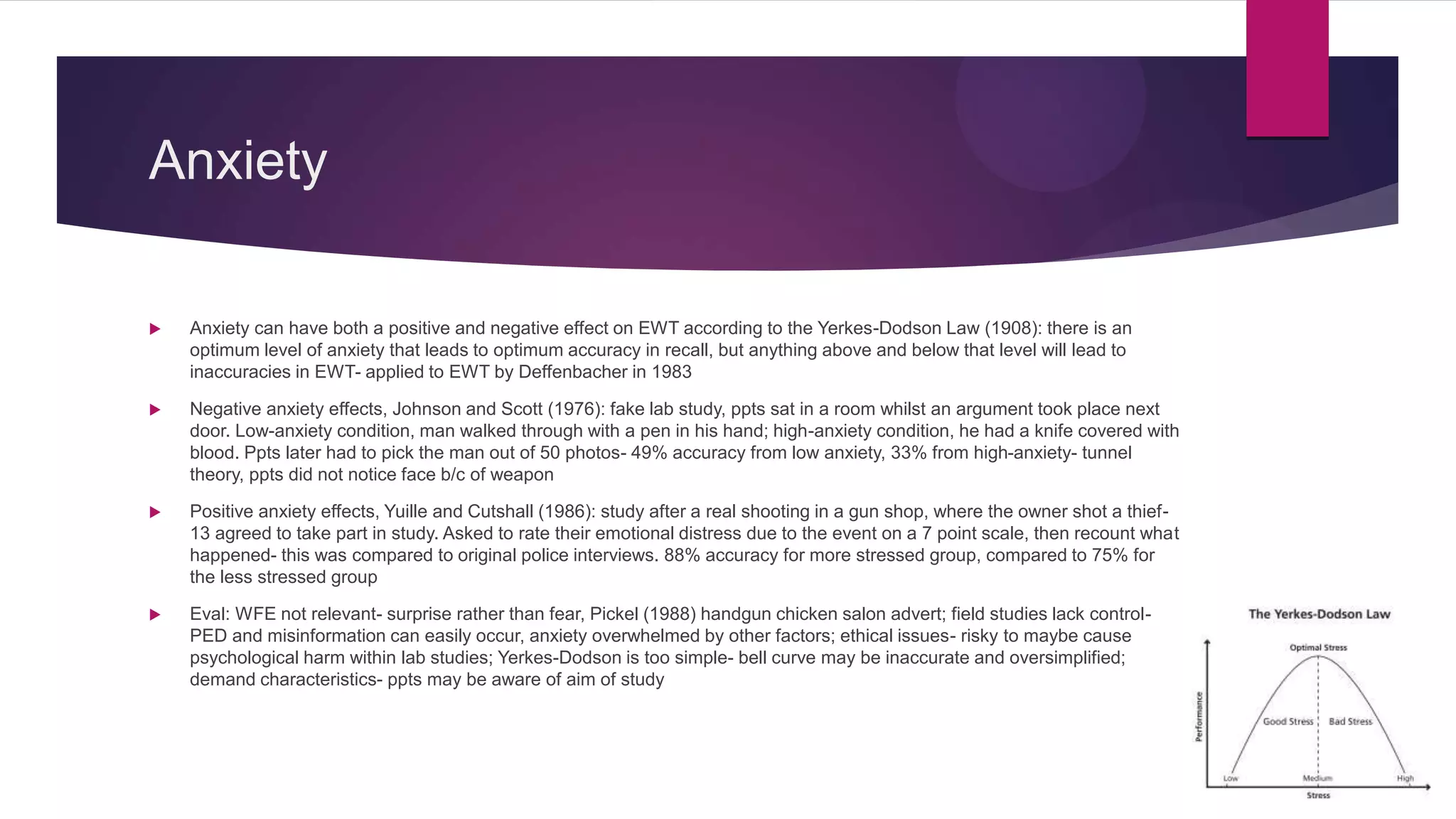The document reviews several memory models, including the Multi-Store Model (MSM) and Working Memory Model (WMM), discussing aspects such as coding, capacity, and duration of memory with supporting research. Additionally, it explains the effects of interference, retrieval failure, misleading information, and anxiety on eyewitness testimony, along with practical applications for cognitive interviews. Evaluations of these theories highlight their strengths and limitations, emphasizing the complexity of memory processes and their implications for real-world contexts.








